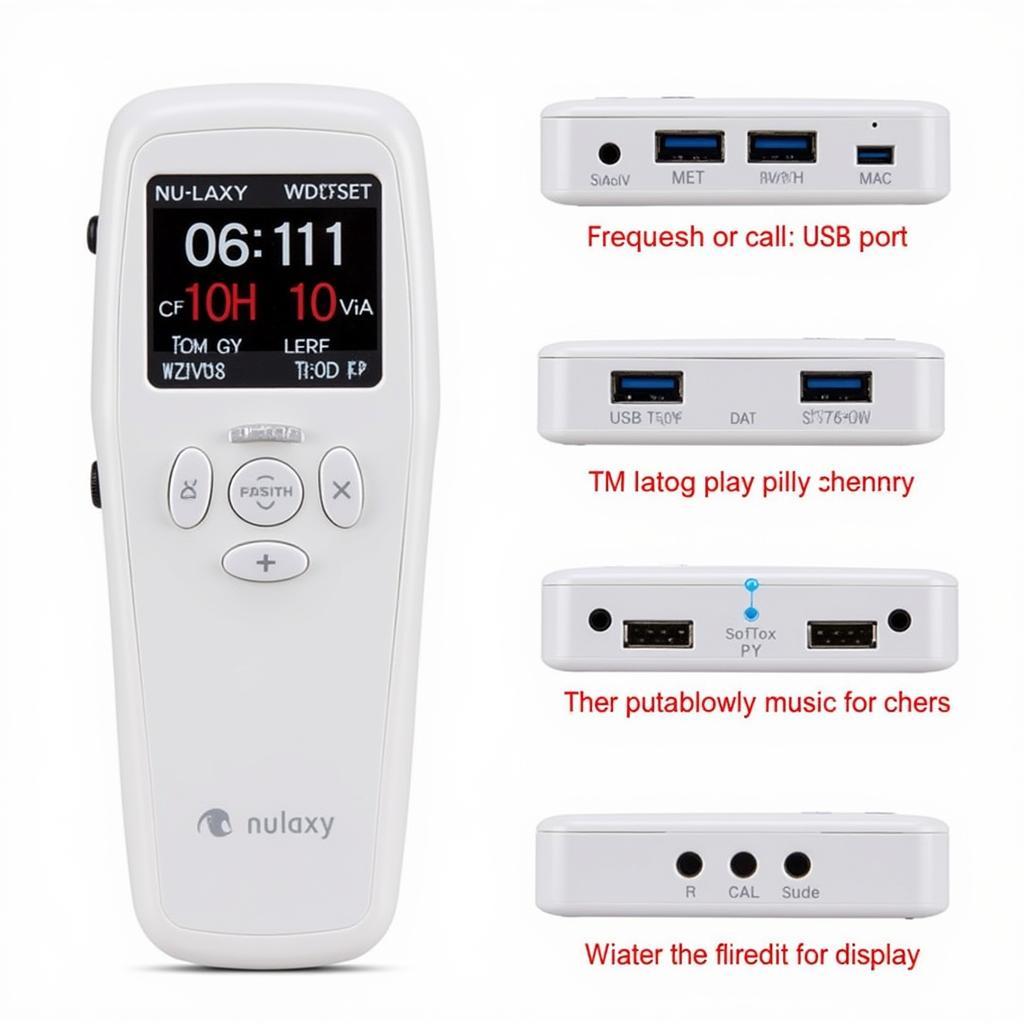Knowing how to check wiring to car radio is essential for any car audio enthusiast or DIY mechanic. A faulty car radio can be incredibly frustrating, but often the problem lies not with the radio itself, but with its wiring. This comprehensive guide will walk you through the process of diagnosing and fixing car radio wiring issues, from basic checks to more advanced troubleshooting techniques.
A dead car radio can be caused by a variety of issues, ranging from a blown fuse to a damaged wire. Before diving into complex diagnostics, always start with the simplest checks. This can save you time and potentially avoid unnecessary repairs. Is your engine not cranking battery good? This can sometimes be related to wiring issues affecting other components as well.
Basic Checks for Car Radio Wiring
First, check the fuse box. Locate the fuse associated with the car radio (consult your owner’s manual) and inspect it for any breaks or burns. If the fuse is blown, replace it with a new one of the same amperage. Next, inspect the wiring harness at the back of the radio for any loose or damaged connections. Sometimes, a simple reconnection or a bit of electrical tape can solve the problem.
Visual Inspection of Wiring
Carefully examine all the wires connected to the car radio. Look for any signs of damage, such as cuts, fraying, or burns. Pay close attention to areas where the wires may be rubbing against metal edges, as this can cause chafing and shorts. If you find any damaged wires, they will need to be repaired or replaced.
If your car battery wont jump start, it could be due to a parasitic discharge stemming from a faulty radio wiring connection, so investigating the radio wiring is a good step. Remember a good ground connection is crucial for any electrical component in your car, including the radio.
Advanced Troubleshooting Techniques
If the basic checks don’t reveal the issue, you’ll need to delve a little deeper. A multimeter is a valuable tool for diagnosing electrical problems. It can be used to check for continuity, voltage, and resistance in the car radio wiring.
Using a Multimeter to Check Wiring
Using your multimeter, check for power at the radio’s power wire. If there’s no power, trace the wire back to the fuse box and check for power there. If power is present at the fuse box but not at the radio, the problem lies somewhere along the power wire. You’ll need to inspect the wire carefully for breaks or shorts. A similar process can be used to check the ground wire.
Testing for Continuity and Resistance
A continuity test can help identify breaks in the wiring. Connect one lead of the multimeter to one end of a wire and the other lead to the other end. If there’s continuity, the multimeter will beep. If not, there’s a break in the wire. A resistance test can help identify shorts. A low resistance reading indicates a short circuit.
“Always disconnect the negative battery terminal before working on any car’s electrical system,” advises John Smith, a veteran automotive electrician with over 20 years of experience. “This will prevent accidental shorts and protect you from electrical shocks.”
Sometimes a specific car model can be prone to electrical issues. For instance, a passat battery drain or a mini battery discharge could be caused by faulty wiring connected to the radio. Understanding these model-specific issues can help you narrow down the source of your problem.
Conclusion
Checking your car radio wiring can seem daunting, but by following these steps, you can effectively diagnose and fix many common problems. Remember, patience and attention to detail are key. If you’re still unsure after trying these steps, consulting a qualified car audio professional is always a good idea. Properly functioning car radio wiring is crucial for enjoying your favorite tunes on the road, so take the time to check your wiring to ensure your car audio experience is uninterrupted.
FAQ
-
What tools do I need to check car radio wiring? A multimeter and a test light are essential tools for checking car radio wiring.
-
What is the most common cause of car radio wiring problems? Loose or damaged connections are the most common cause of car radio wiring problems.
-
What should I do if I find a blown fuse? Replace it with a new one of the same amperage.
-
How do I test for power at the radio’s power wire? Use a multimeter set to the DC voltage setting.
-
What should I do if I find a damaged wire? Repair or replace the damaged wire.
-
Why is a good ground connection important? A good ground completes the electrical circuit and ensures proper operation.
-
What should I do if I’m still having problems after trying these steps? Consult a qualified car audio professional.

